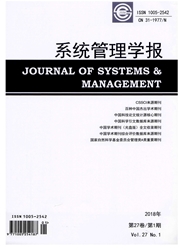

 中文摘要:
中文摘要:
构建颠覆性创新行为与市场绩效关系模型,分别从初创期和成长期考察颠覆性创新企业的渠道创新、顾客教育、产品改进和战略业务单元建立行为通过影响消费者偏好进而影响企业绩效的作用机理。研究发现,在初创期,渠道创新行为通过降低企业成本,影响消费者偏好进而提高市场绩效,顾客教育与产品改进行为通过提高消费者对颠覆性创新产品性能的偏好程度,进而影响市场绩效;在成长期,产品改进行为不断提高消费者对颠覆性创新产品的接受程度,并对在位企业造成颠覆性打击,并且,随着企业战略业务单元自治能力不断增强,均衡定价不断下降,进而影响消费者的偏好水平,从而提高市场绩效。揭示了不同的颠覆性创新行为在不同创业期的激励机理,加深了颠覆性创新过程中,企业创新行为与消费者偏好的动态变化,及其与市场绩效关系深刻变化的理论解释。
 英文摘要:
英文摘要:
This paper sets up a model to examine the relationship between the disruptive innovation behavior and the market performance in the market with endogenous consumer preference. The results show that, during the start-up period, the channel innovation behavior impacts consumer preferences thus improve market performance by reducing business costs; the customers education and product improvement behavior increase the consumer preference for disruptive technology product performance, hence affect the market performance during the growth period, the product improvement increases the consumer acceptance of disruptive technology products continuously, and make the incumbent a bad knock. At the same time, with reinforcement of strategic business unit, the equilibrium price declines, which influences the consumers preference, thus enhances the market performance. This study reveals how the different behaviors of disruptive innovation influence the market performance through consumer preference, providing a new perspective to study the resource integration of disruptive innovation.
 同期刊论文项目
同期刊论文项目
 同项目期刊论文
同项目期刊论文
 期刊信息
期刊信息
